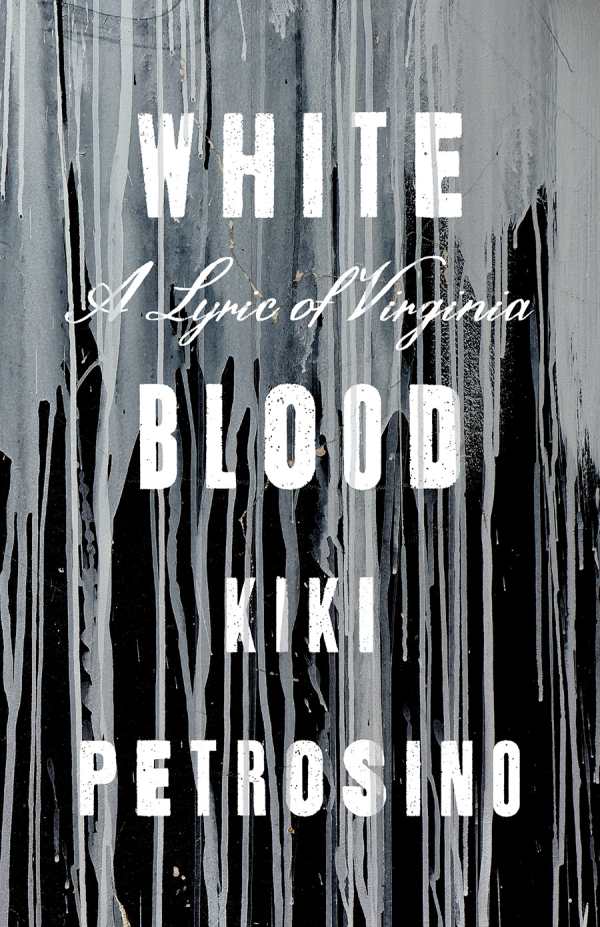White Blood
A Lyric of Virginia
In the opening poem of White Blood: A Lyric of Virginia, silent ancestors elude the speaker, keeping her history and that of her family forever enshrouded in smoke, but modern science lights some small match, scattering the ghosts. Haunted, historical, formal and rigorous, these poems explore the power of genetic research combined with archival research and literary invention to make sense of family history and identity.
In erasure poems whose titles are “What Your Results Mean” and that end with a world region and a percentage, Kiki Petrosino explores ethnic breakdowns that mirror those of many black Americans: part African, part European. With the erasure form, the poet highlights only those parts of identity that resonate for her and that make sense of her story in the US. She combines this formal invention with a crown of sonnets about the burgeoning and painful disillusionment she felt as a young woman of color: entering the university system, thinking she had made it, and fulfilling the long-fought-for dream.
But Petrosino moves the goal, walking back across time to invoke Sally Hemmings and the black women of Monticello, while a contemporary speaker talks about the commodified bodies of black women in American history, continued today with plantation tourism and the like. The poems look ahead to another family branch, the Free Smiths of Louisa County, too.
In each section, Petrosino makes inherited forms fresh, including the sonnet, the villanelle, and the erasure poem. The cycling, elusive memory-making of the villanelle is most apt as the speaker tries to wring more clarity from the static nature of written history. The form makes real the frustrating, solipsistic nature of such endeavors.
The result of deep historical research, impressive formal dexterity, and savvy storytelling, this volume of poetry combines genealogy, history, and verse in a way that reflects many American experiences.
Reviewed by
Camille-Yvette Welsch
Disclosure: This article is not an endorsement, but a review. The publisher of this book provided free copies of the book to have their book reviewed by a professional reviewer. No fee was paid by the publisher for this review. Foreword Reviews only recommends books that we love. Foreword Magazine, Inc. is disclosing this in accordance with the Federal Trade Commission’s 16 CFR, Part 255.

